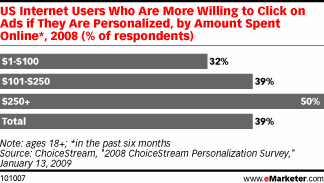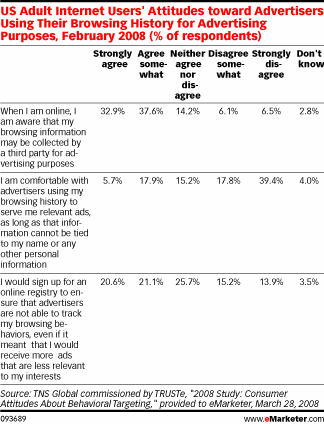Do Not Resuscitate Do Not Track, Part III

What a difference a year and a little election make. In 2007, the Marketing Consigliere blogged in Do Not Resuscitate Do Not Track Part I and Part II about the importance of government steering clear of regulation of behavioral targeting.
Late last week, the Federal Trade Commission issued a report entitled “Self-Regulatory Principles For Online Behavioral Advertising” advising the manner in which markete rs gather, store, collaborate and act upon data gathered from and about website visitors. While basically echoing the Bush Administration’s hands-off approach, there was a slight change in philosophy and the Obama Administration did warn that the Federal government would be prepared to step in with regulation if the industry’s self-regulation could not clearly protect the privacy of online individuals.
According to the new FTC, there are four “governing concepts” by which marketers must continue to heed:
The first is transparency and control – marketers that gather data for behavioral advertising should disclose to website visitors in an explicit, understandable way the existence of such a practices and enable the visitor to choose whether or not to allow the practice.
The second principle advises reasonable security and limited data retention – marketers need to establish controls that ensure “reasonable” security of collected data, and should retain that data for only “as long as necessary for legitimate business or law enforcement needs.”
The third principle regards material changes to privacy policies – a user must be requested to give their consent before a marketer uses behavioral data in a way that is “materially different” from the manner in which it was originally explained how it would be used.
Lastly, the fourth principle dictates that marketers should obtain affirmative express consent before they use sensitive data for behavioral advertising. Sensitive data includes but is not necessarily limited to minor status, health or financial information.
Ironically, the previous week, eMarketer reported in a newsletter about a ChoiceStream survey concluding that personally targeted advertising is desired as the dollar amount spent online by an individual buyer rises.

However, the same newsletter reports on a TRUSTe commissioned TNS Global survey that indicates that while most Americans are aware that data may be collected about them, many are uncomfortable with targeted ads even if the data used to serve the ads cannot be tied to their name.

Additionally, a substantial number of Americans would opt out of receiving behaviorally targeted online ads even if they would then have to see ads they would never be interested in.
So while the Marketing Consigliere is still against this form of regulation that the new Administration may feel compelled to apply, he acknowledges that the Federal government may actually be listening to its constituents.
Marketers, don’t forget vox populi.
